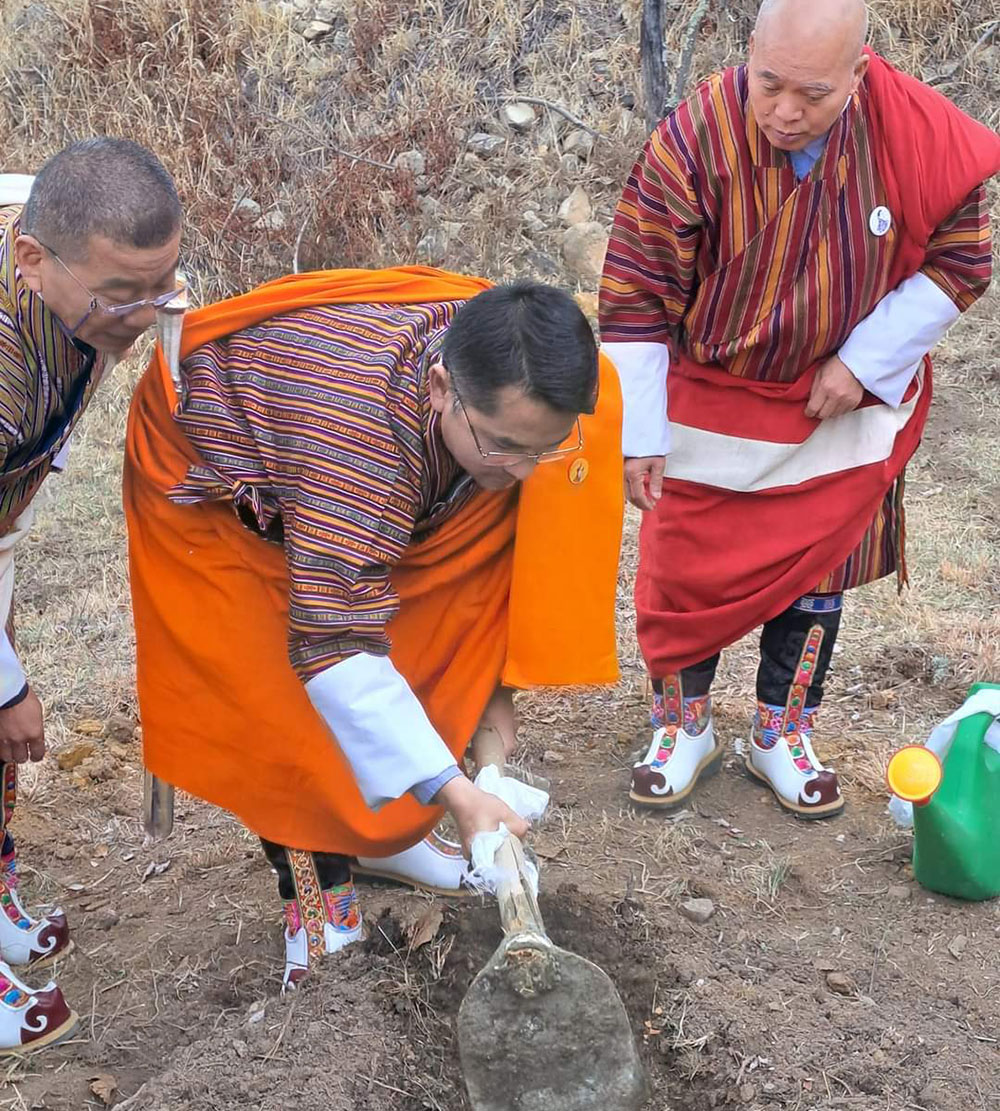… to commemorate the Birth Anniversary of His Royal Highness the Gyalsey
YK Poudel
With the planting of eight almond seedlings at Chang Mindi, Wangchang gewog in Paro yesterday, the third phase of Million Fruit Trees Plantation officially kicked off.
Agriculture Minister Younten Phuntsho launched the programme, to commemorate the birth anniversary of His Royal Highness the Gyalsey. Officials from ministry of agriculture and livestock, His Majesty’s Secretariat, DeSuung office and Paro dzongkhag attended the event.
The project this year is to plant 1,221,447 high-value fruit trees (249,339 temperate and 972,108 sub-tropical). It targets to plant at least one million fruit seedlings in a year—the additional 221,447 seedlings are mainly to replace the dead seedlings from the MFTP Phase II.
Under this initiative eleven high value fruit trees will be prioritized for distribution and plantation namely: almond, walnut, pecan nut, kiwi and apples in temperate region and macadamia nut, irwin mango, bears lime, avocado, mandarin and agarwood in the subtropical region.
Similar to the earlier two phases, thousands of de-suups will be deployed for distribution and plantation of high-value fruit crops as Royal Soelra.
According to the press release, the fruit types were selected based on the climate suitability, export market potential, economic return, health benefits, processing and value addition potential.
The project in its second phase last year planted 1,009,620 trees and benefited 41,315 farmers, 324 government agencies, 257 schools, and 137 dratshangs across the country involving about 1,300 de-suups.
The project achieved 100.1 percent temperate target and 100.9 percent subtropical target planting 1,010,100 fruit trees crossing the 1,003,562 national target.
Similarly, the first phase of the project within three months in 2022 planted 1,014,085 fruit trees of 22 varieties engaging 2,118 de-suups.
All planted fruit seedlings are geo-coded using the Kobo toolbox for ease of monitoring and follow-up interventions in the future.
To assess mortality using geo-coded records, the agriculture department, in partnership with the De-Suung National Service, conducted field surveys from September to October for the temperate plants and from November to December for sub-tropical plants.
The distribution was determined based on the location of the communities, availability of land, suitability for a particular geographic and climatic zone, and economic importance.
Simultaneously, the ministry in collaboration with de-suups shall also establish fruit seedling nurseries at Chimipang and in other suitable government farms, targeting to produce sufficient seedlings to completely meet the one million seedlings from domestic sources for the MFTP phase five.
The project is a joint initiative of the De-Suung National Service and the Ministry of Agriculture and Livestock that aims to enhance the livelihood of rural communities. It is expected to continue till 2026.
The MFTP project came upon the Royal Command of His Majesty The King as Royal Soelra aimed at enhancing the income of the rural households and increasing nutritional intake through cultivation of fruit trees by all farmers.


